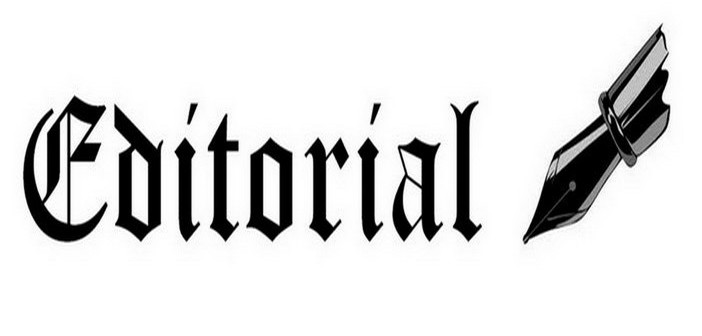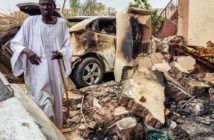The Middle Eastern Yalta has been blown to pieces…
The awakening of the cold war between Moscow and Washington (followed by its NATO vassals) that lit Ukraine on fire and turned its ground bloody also complicates the discourse around the struggle against the Islamic State in Syria. Also the future of president Bashar al-Assad is open for discussion, but none of those events should hide another “war by procuration”, that weakens the Middle East since many months, having been transformed into a battlefield between Riyadh and Tehran.
Since the electoral victory of the “reformer” camp in Iran in June 2013, the country apparently feels itself propelled and the recent nuclear agreement, which returns Iran to its place in the concert of nations, permits it to as of now resonate with a grave voice.
The Saudi zone of influence thereby suffers Iranian attacks, stroke after stroke: in Iraq, where the governmental coalition, supported by paramilitary Shiite militia, continuously affirms itself within a stigmatised Sunni population, accused of serving Daesh; in Syria, where under the lead of Moscow Iranian militia fight alongside Lebanese Hezbollah battalions, which since 2011 has gotten to power through the voting booths in Beirut; in Yemen, where the Houthis have taken over Sanaa, forcing the pro-Saudi president Hadi to exile himself in Aden, in the South of the country – despite the military intervention of Saudi Arabia, heading an international Sunni coalition, with the United Arab Emirates, Bahrain, Kuwait, Qatar (that is finally marching to the rhythm again, after Doha bet a lot on the Muslim Brotherhood, in Egypt as well as in Syria, and did not appreciate Riyadh’s support of al-Sissi – causing bad humour between the two monarchies), but also Egypt, Morocco, Jordan and Sudan (but not the excellent ally and great Pakistani debtor who kindly declined the offer… Some in Islamabad have concluded that Pakistan does not need to “support the expansionist policy of Riyadh”).
Iran hit hard and everywhere it can; not even the small kingdom of Bahrain escapes from the belligerent activities of its threatening neighbour, making efforts to empower the strong Shiite minority in Manama, to try and infiltrate and destabilise this archipelago of the Arab-Persian Gulf.
Tehran resists Riyadh and boasts without remorse to control, already, four Arab capitals: Damascus, Baghdad, Sanaa and Beirut – four tame puppets, which the Islamic Republic thinks of bringing up in the right way to bite its Sunni enemies.
It is a perilous situation for the American president, Barack Obama, who already needs to fight a war against the unbreakable Islamic State, needs to castigate the ottoman felony, has to manage its old Arab ally (also responsible for the rise to power of the jihadist Frankenstein, of whom the Saudis are afraid to suffer from in the close future), whilst simultaneously courting his new Persian “friend”, Hassan Rohani, whose political liberalism, replacing the intransigent revolutionary spirit of his predecessor Mahmoud Ahmadinejad, brings up bright hopes for the coming times, such as the thawing of economic relations and – why not? – the return to Iran of North-American petrol companies… and – why not as well? – the dispatching of ground troops from Tehran to Iraq and Syria, some small soldiers that could do the dirty job of fighting a war too dangerous for the Western governments, happy to conserve their positive public opinion ratings.
The Westerners, indeed… From the barking United States, unable to extinguish the flames of all those fires popping up in the increasingly unmanageable Middle-East… and the Europeans, being lost in discussions worthy of wash wives, incapable of the least initiative, arguing against each other whilst being hit by successive waves of migrants, hundreds of thousands of refugees, poor uprooted people, chased away from their homes by the terrors of a war lit by those that now close the open doors to them. France, the United Kingdom, who ravaged in Libya before fleeing without any regard to any one, Germany as well as others, who, a little bit to hold up the Russians and a little bit to conform to Washington’s policy, wanted to weaken the regime, but without overthrowing it – in other words without risking to put Israel into a dangerous situation, something that Damascus has respected since 1973 – and thereby left the Syrian revolution to its macabre legacy, watching, without turning away, how it got smashed between the army of the regime and the hordes of the al-Qaeda and Daesh Islamists.
China does not say a word, but Russia certainly tells the world what it thinks. Russia comes back in force into the big game of the Middle East.
Already in April 2015, Russia had unilaterally decided to lift its embargo on weapon exports towards Iran… Russia now imposes itself in Syria, under the angry eyes of the French president who, one incoherence less or more not really mattering, calls to the fight against Daesh, condemning in the same sentence the only world power ready to really get into that fight.
Certainly Moscow defends its backyard. It also protects itself from the potential expansion of the Islamic State in the direction of the Caucasus… and Moscow also came to the help of its ally, stable and loyal since more than sixty years: the Russian air force does not only bombard the Islamists; accessorily they manage to erase from the map of Syria the last battalions of the Free Syrian Army… But François Hollande may shout on and condemn as much as he likes – it is too late… Since the summer of 2012, it is too late for Syria.
It is that, which the Frenchman has not quite realised yet: in two years’ time, Vladimir Putin and Bashar al-Assad will both still be running their countries… And it will be the two of them, or at least so it appears, who will redraw the map of the Middle East.



